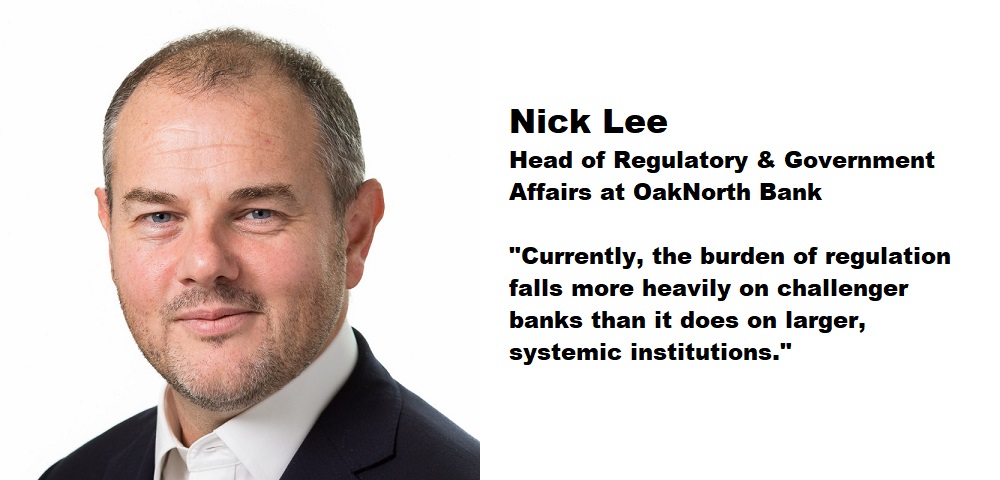To help neobanks scale we need better regulation

Banking regulation should be proportionate to the level of systemic risk banks hold, writes Nick Lee, Head of Regulatory and Government Affairs at OakNorth Bank.
In 2013, the UK financial regulator at the time – the Financial Services Authority (FSA) – published a paper seeking to reform the authorisation process for bank applicants; and create a major shift in the approach to the prudential regulation of banking start-ups.
These changes were designed to reduce the barriers to entry and expansion and increase competition in the banking sector. A month after the paper was published, the FSA was replaced by new UK financial regulators – the Prudential Regulation Authority (PRA) and the Financial Conduct Authority (FCA).
They understood that any successful market economy or sector needs to have the capacity for new entrants to be able to compete with existing incumbents – they bring fresh ideas, new business models, and innovation.
They also understood that since Metro Bank had been granted its banking license in 2010, the first in the UK in 150 years, no others had been granted, so they were keen to change this. This started with Paragon in 2014, followed by OakNorth, Atom and Tandem in 2015, and since then, there have been almost three dozen new banking licenses granted in the UK to players such as Monzo, Starling, and Allica.
So, it’s fair to say the regulators have delivered on the first goal – reforming the authorisation process for bank applicants – but what about the second to create a major shift in prudential regulation of banking start-ups?
No new entrants have yet to scale enough to be considered significant competitors to the incumbents.
One factor that has prevented this has been regulation.
But what’s needed is not less regulation, but better regulation – i.e. regulation that is agile, proportionate, focussed, and risk-based. Regulation that ensures financial stability and consumer protection, whilst allowing growth, innovation, and competition to flourish.
Currently, the burden of regulation falls more heavily on challenger banks than it does on larger, systemic institutions. That is evidenced by higher capital and regulatory requirements per pound of risk exposure.
These risk and reporting requirements don’t differ between small, new banks and global multinationals. With an ever-broadening scope of regulatory requests and requirements, it seems counterintuitive to competition to disregard size and status.
The full article here
Dariusz Mazurkiewicz – CEO at BLIK Polish Payment Standard
Banking 4.0 – „how was the experience for you”
„To be honest I think that Sinaia, your conference, is much better then Davos.”
Many more interesting quotes in the video below:










